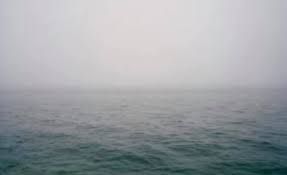Please Don’t Pull the Weeds
 Homily for the Sixteenth Sunday in Ordinary Time
Homily for the Sixteenth Sunday in Ordinary Time
July 19, 2020
Many people in this valley had the opportunity to work on the tobacco farms. When I was in college, I got to go in early, as soon as classes ended, and so I got to see more of the whole process: planting, cultivating, and hoeing. From time to time, I would take a step back to admire the work we were doing. When the weeds were removed, and the rich, dark soil was turned over, how beautiful it all looked. It made me feel like the steward of creation, the tender of the Garden of Eden as in the story of Adam and Eve.
Weeds have a way of taking over the world in unwanted ways. Several years ago, I went to the Expo, a world’s fair, in Montreal. It was a magical place, with unique exhibits, food from around the world, beautiful sights and sounds and smells. Then some years later, I returned to the site and discovered that most of it had been abandoned—I guess there’s not much you can do with large, hulky building made for masses of people. What struck me the most was how nature was taking back the place: huge weeds forced their way through cracks, creating a kind of forest of ugliness.
My earliest experience with weeds, however, was when I was a young child. My mother was weeding the flower garden, and she had to go in to answer the phone. So, I decided I was going to help her out. I started pulling left and right, until she came out and yelled for me to stop. The problem was that I couldn’t tell a weed from a flower, and so I was pulling out the good with the bad.
And as I reflect on it now, I wonder if there is some wisdom in my childish ways—a kind of dangerous wisdom. Let me explain. First, weeds can be a relative thing. Certainly weeds in a tobacco field are unwanted, but who would want tobacco suddenly springing up in your beautifully manicured lawn? Rose bushes are beautiful, but if they suddenly started appearing, helter skelter all over the lawn, that might be nice for a while, but it would make lawn mowing rather difficult.
Now, in the story Jesus tells, he notes that weeds and wheat are so intermingled, if you try to pull up one, you might take the other with it. That happened to me recently when I was trying to weed around some Easter lilies I had planted. For some reason, the weeds, with quite a strong root system, wanted to be best buddies with the lilies. I yanked out a weed and the lily came up with it.
If you apply this to people, this is where dualistic, black and white thinking gets dangerous. If we divide people into winners and losers, worthy and unworthy, useful and useless, likeable and unlikeable…this can lead to: racism , in which one group is considered racially superior to another; or ageism , in which those who cease to be productive can easily be cast aside as unuseful to society; or sexism in which one sex is considered more important or preferable. If you divide people into wheat and weeds based on their race, culture, sexual identity, religious preference—and you think you have the right to cherish one and denigrate, despise or cast aside the other—that’s dangerous.
Now, sometimes we don’t even realize that we are doing it because it’s part of our ordinary way of seeing the world. For example, when I was a child, I remember an explanation of sin and its effect on the soul. We would start out with a bottle of white milk. With each sin we committed, a black blotch would appear, and the milk would get blacker and blacker, at least until you went to confession, and then the milk would be white again. Did you ever stop to think that this can lead to thinking, at least subconsciously, that white is good, and black is bad? Or how about some of the western shows we used to watch? Weren’t the good guys often in white hats, and the outlaws in black? That’s part of our subconscious, too. And so, we live in a world in which we have to be reminded that black lives matter, that women matter, that Jews matter, that gay people matter. Sure, we all matter, but for some it doesn’t need to be said because it’s implied in the very way we see the world. We’ve divided the world into weeds and wheat, and we often don’t even recognize it. We don’t know one from the other, any more than I knew a weed from a flower as a child.
And that’s why Jesus’ advice in today’s gospel is so important. He’s saying that in this case the weeding is above our pay-grade, beyond our understanding, best left up to God and the angels at the end. We’re simply not qualified for the job, and when we’ve tried it, we’ve made an awful mess.
You might also like
Father's Homilies




